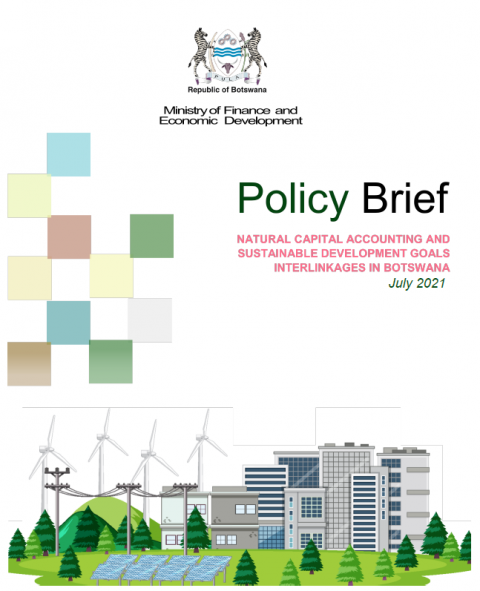Policy Brief: Natural Capital Accounting and Sustainable Development Goals Interlinkages in Botswana

Document Summary:
Natural capital accounting (NCA) is the process of calculating the total stocks and flows of natural resources
and services in a given ecosystem or region/country. Accounting for such goods may occur in physical and
monetary terms. The objective is to use this information for better government decision-making. Compiling
NCA for water, energy, minerals and the adjusted macroeconomic indicators of sustainability in Botswana
uses the internationally accepted methodology called the System of Environmental Economic Accounting
(SEEA). Due to strategic importance of water, energy and minerals in the economy, these resources were
prioritized for NCA by the Botswana Economic Advisory Council during the inception of World Bank-led Wealth
Accounting and the Valuation of Ecosystem Services (WAVES) programme in 2012. The SEEA is satellite to
the System of National Accounts (SNA) which is used globally to monitor economic performance of most
countries. It thus uses concepts, definitions and classifications consistent with the SNA.
The increased use of the SEEA leads to improvements in data quality and therefore better economic
decisions affecting natural resources management. In Botswana, data generated by different natural capital
accounts is used to monitor various SDGs indicators and this linkage will be shown in this Policy Brief.
